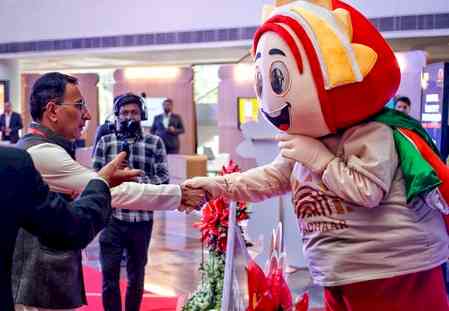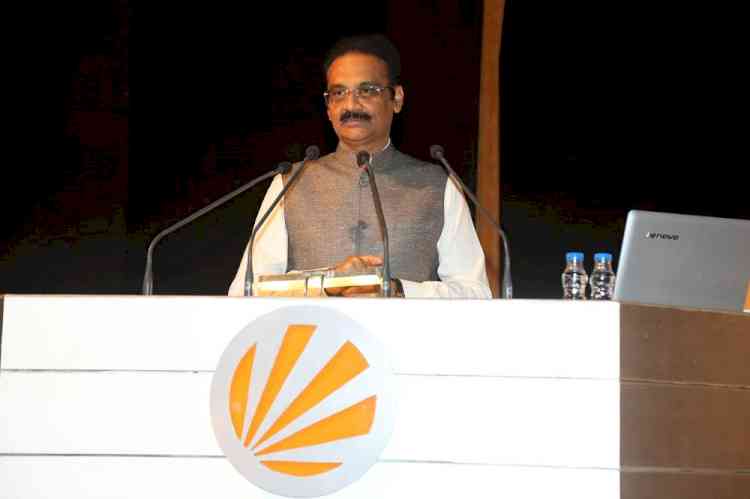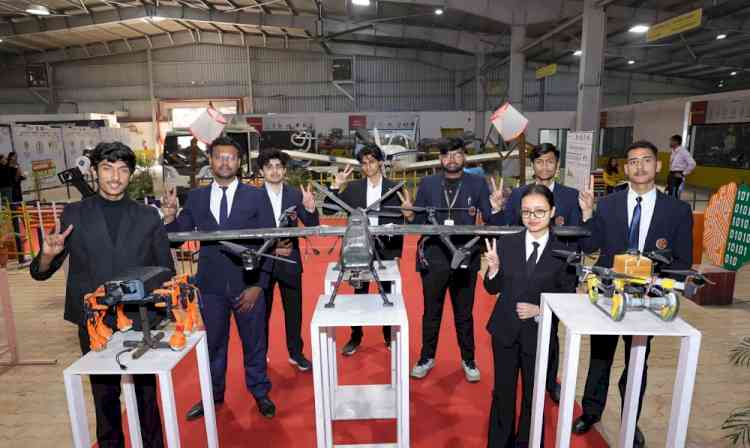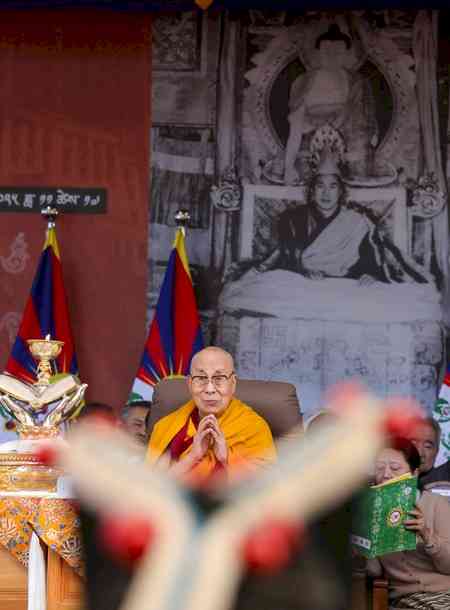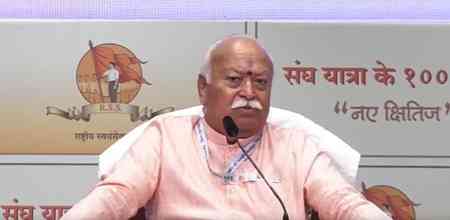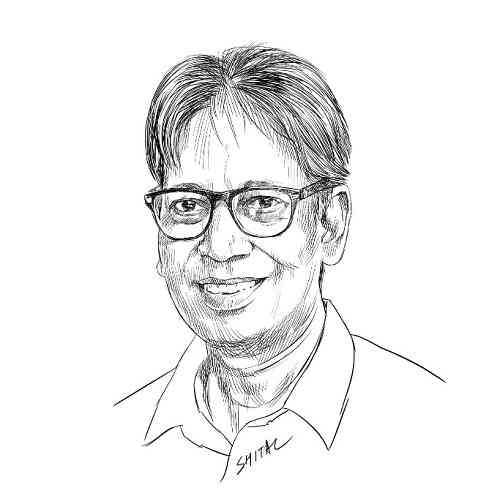UK-India Symposium Launches Groundbreaking Project to Build Future-Ready Cities
A major international symposium, "Enhancing Urban Resilience and Sustainability through UK-India Collaboration," was held at Munjal Birmingham City Centre of Innovation Ludhiana on September 17. This event marks the official launch of the SSG-Bridge project, a prestigious year-long initiative bringing together experts from the UK and India to tackle the pressing challenges of modern urbanization.
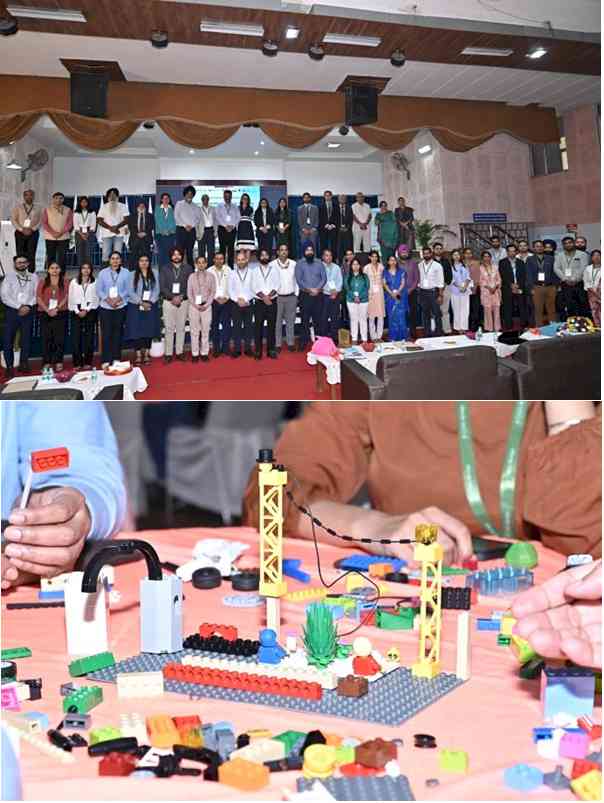
Ludhiana, September 18, 2025: A major international symposium, "Enhancing Urban Resilience and Sustainability through UK-India Collaboration," was held at Munjal Birmingham City Centre of Innovation Ludhiana on September 17. This event marks the official launch of the SSG-Bridge project, a prestigious year-long initiative bringing together experts from the UK and India to tackle the pressing challenges of modern urbanization.
The project is a high-level collaboration led by Birmingham City University (BCU) in the UK and Lovely Professional University (LPU) in India, with the support of the Munjal BCU Centre of Innovation & Entrepreneurship (MBCIE). It is generously funded by the British Council’s International Science Partnerships Fund (ISPF) and the Indian Council of Social Science Research (ICSSR).
The SSG-Bridge project is centered on the integrated concepts of Smart, Sustainable, and Green (SSG) cities. Its core mission is to conduct a comparative feasibility study of two distinctly different urban centres: Ludhiana, India's rapidly growing industrial powerhouse, and Birmingham, a mature, post-industrial city in the UK. By studying these two "urban laboratories," the project aims to develop adaptable, globally relevant solutions for creating cities that are technologically advanced, environmentally responsible, and socially equitable.
The three-day symposium will serve as the primary catalyst for the project, bringing together high-level policymakers, urban planners, industry leaders, and academics from both nations. The event will feature keynote addresses, panel discussions, and innovative workshops, including a hands-on LEGO® SERIOUS PLAY® session designed to collaboratively build a shared vision for an SSG city.
On Day one, Dr. Vahid Javidroozi, the project's UK lead from Birmingham City University, highlighted the initiative's unique approach. "A truly smart city isn't just about technology; it's about integrating processes, policies, and people," said Dr. Javidroozi. "The SSG-Bridge project challenges the conventional tech-first model. By comparing Ludhiana and Birmingham, we can uncover fundamental principles for urban resilience that work in radically different contexts. This symposium is the critical first step in building that bridge of knowledge."
A key focus of the project is also on nurturing the next generation of urban development experts. The initiative includes a comprehensive capacity-building programme for a cohort of Early Career Researchers (ECRs) from both countries, providing them with mentorship and collaborative research opportunities.
Speaking on the project's significance for India, Dr. Neeta Raj Sharma, a key member of the India-based leadership from Lovely Professional University, stated, "Ludhiana is a city of immense economic vitality, but it faces significant environmental and infrastructural challenges. This collaboration with our UK partners provides a vital platform for mutual learning. Our goal is not only to produce cutting-edge research but to create a lasting legacy. A key objective is the establishment of a dedicated SSG Research Centre at LPU to continue this important work for years to come."
Karolina Medwecka-Piasecka, East Birmingham Programme Development Manager for Birmingham City Council, shared Birmingham’s data-driven approach to inclusive and sustainable urban renewal. She detailed the Tyseley Environmental Enterprise District (TEED), a zone dedicated to the low-carbon economy , which utilizes a "digital twin" of the area to simulate and solve challenges like pollution and traffic congestion in real-time. “Our focus is on turning areas of historic deprivation into hubs of opportunity, using technology, green infrastructure, and community partnerships to drive sustainable growth,” she stated during her presentation.
Ar. Sanjay Goel, the celebrated architect behind Ludhiana's Sidhwan Canal Waterfront Development, spoke on the critical role of well-designed public spaces in creating socially sustainable and vibrant urban communities, drawing lessons from the successful execution of the waterfront project.
The symposium was graced by the presence of several esteemed guests, including Mr. Gurmeet Singh Kular, a pivotal figure in advocating for MSME growth in Punjab. ; Ms. Lakhminder Kaur, an expert in corporate social responsibility and sustainable business practices; and Mr. Mahinder Singh Sekhon, a respected member of the Public Accounts Committee (PAC). Their participation underscores the project's relevance to the industrial and civic fabric of the region.
Dr.Prem Kumar, Executive Director of BCU stated, “Cross Country Studies on urban development of technological and community driven innovations leading to individual country adaptations for better quality of life in the digital and AI age. He thanked all the resource persons, participants, and stakeholders.
The symposium's agenda is designed to move from theory to action, culminating in the formation of UK-India research teams tasked with co-authoring high-impact academic publications. This outcome-driven approach ensures the collaboration will produce tangible results that can inform urban policy in both countries and beyond.



 City Air News
City Air News 
